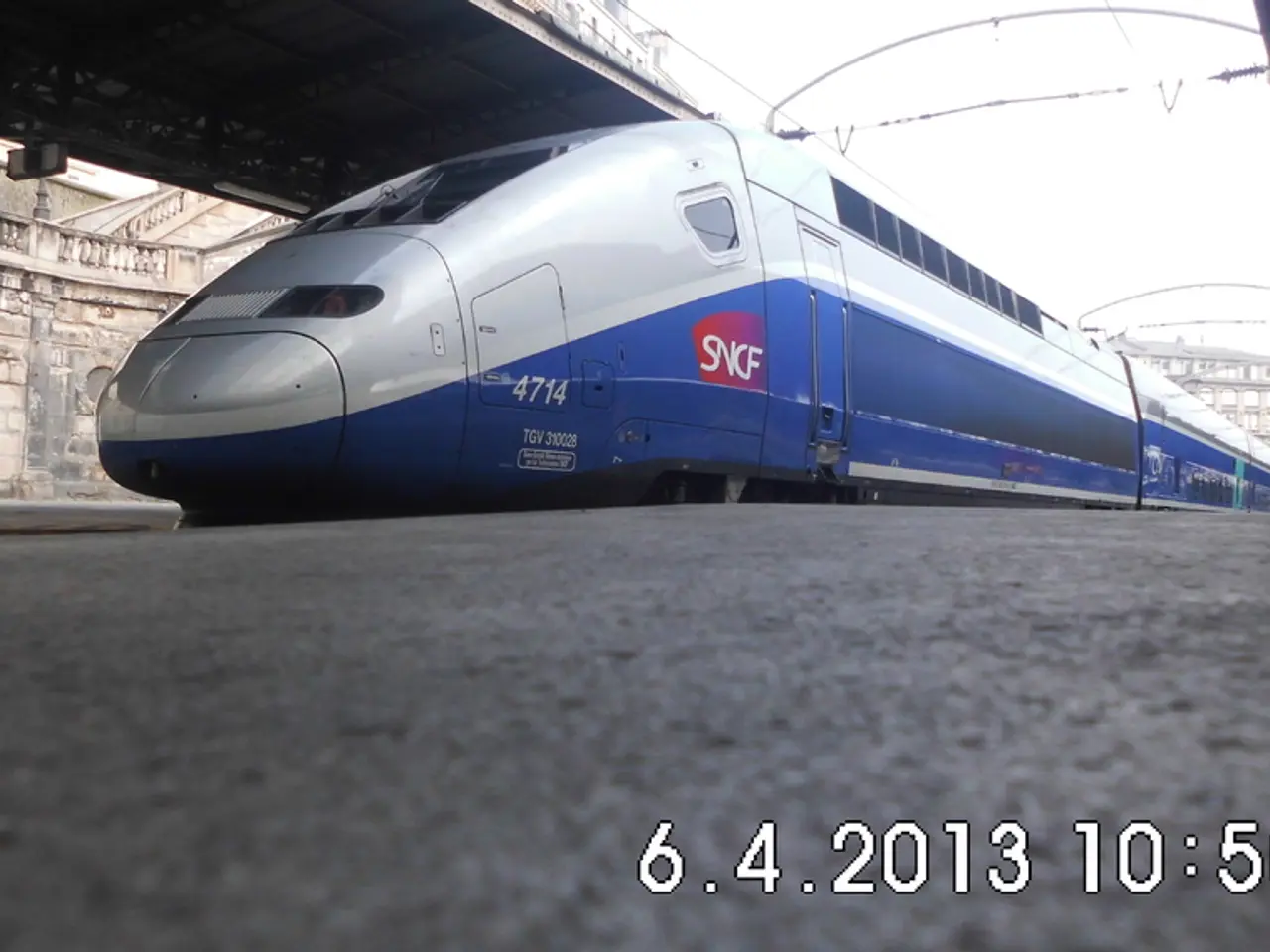Michael O'Leary's correspondence: MetroLink labeled as insane and ill-fated endeavor
Article Title: Controversy Surrounds Dublin MetroLink Project as Cost Concerns and Alternative Proposals Emerge
The Dublin MetroLink project, a proposed rapid transit system for the Irish capital, has been met with criticism and debate over its cost, effectiveness, and potential alternatives.
Michael O'Leary, the CEO of Ryanair, has been a vocal critic of the project, questioning its necessity and cost, which is projected to reach approximately €20 billion. O'Leary proposes an alternative solution, adding more buses to service key areas such as Swords, Ballymun, Collins Avenue, and Glasnevin, in an attempt to save €19.9 billion in taxpayer funds.
Dermot Desmond, a successful businessman with a background in aviation, has also entered the fray, suggesting that autonomous and electric road transport could solve the problem at a fraction of the €20 billion cost over the next decade. Desmond's expertise includes the successful rescue, redevelopment, and sale of London City Airport for approximately $1 billion in 2006.
The original cost estimate for the MetroLink was around €9.5 billion, but construction inflation and other factors mean the final cost will be higher. New estimates are expected by the end of 2025, with tenders to be received by 2027. Despite the uncertainty, the project has undergone a detailed cost-benefit analysis, indicating potential transport benefits of approximately €15.6 billion over 60 years.
Critics, including O'Leary, argue that the MetroLink is excessively costly and poorly targeted, with doubts about usage, especially by Dublin Airport passengers. However, supporters argue that the MetroLink's justification lies in meeting high demand with significantly better travel times and capacity than tram alternatives.
Alternatives such as expanding Luas lines offer lower capacity and slower services, making them less suitable for long-term transport needs in North Dublin. The project has been thoroughly reviewed with a 700-page business case and rigorous appraisal by independent experts, with a cost-benefit ratio supporting the metro given its much higher capacity (2.5 times Luas Green Line) and faster travel times (25 minutes from Swords to the city).
The criticized columnist, who has no known experience in transport, has dismissed O'Leary and Desmond for criticizing the Dublin MetroLink without mentioning its projected cost. However, the cost/benefit analysis of the Dublin MetroLink has never been published, adding to the controversy surrounding the project.
The new government has promised to remove a cap on the project "as soon as possible," but eight months after the election, no action has been taken. The author, with over 39 years of experience in the aviation industry and the creator of the world's largest passenger airline, has criticized the Dublin MetroLink due to the fact that very few passengers at Dublin Airport would use it.
The Dublin MetroLink, if built, would serve a narrow strip of the north Dublin population from Swords to St Stephen's Green, raising questions about its effectiveness in addressing the city's transport needs. The project remains controversial due to cost concerns and debate over optimal allocation of public funds. Michael O'Leary believes that spending €20 billion on a Dublin Airport metro is an unjustifiable waste of taxpayer funds.
[References] 1. Irish Times 2. RTE News 3. Dublin MetroLink 4. Irish Examiner 5. Irish Independent
The transport sector is heavily involved in the controversy surrounding the Dublin MetroLink project, with alternative proposals being put forward to address cost concerns and optimize public funds usage. Michael O'Leary, a figure prominent in the aviation industry, suggests reducing the cost by increasing bus services in key areas, while Dermot Desmond, a successful businessman with a background in aviation, proposes autonomous and electric road transport as cost-effective solutions for the future. Despite differing opinions, the finance industry remains interested in the Dublin MetroLink project, with potential benefits estimated at approximately €15.6 billion over 60 years.




